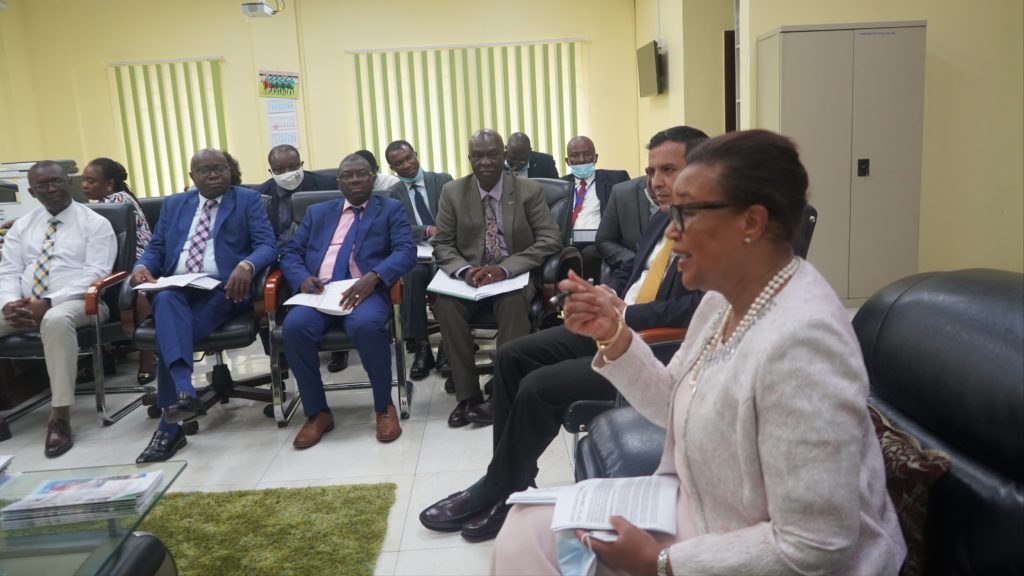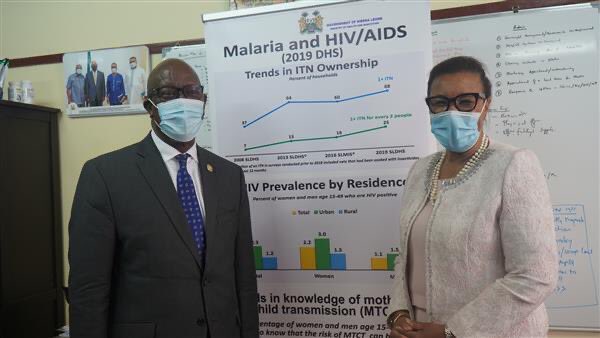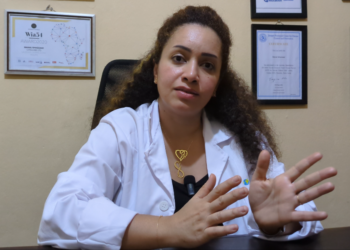Sierra Leone’s President Julius Maada Bio has hailed the Commonwealth for its support to the country’s development efforts.
President Bio said Sierra Leone has always had a good working relationship with the organization from which it has tapped a lot of benefits. He was speaking in an audience with the Secretary General of the Commonwealth, Patricia Scotland, whom he hosted at the presidency on Tuesday, according to a news release from State House.
“We remain grateful to the Commonwealth for the technical support, we look forward to a great Commonwealth,” Bio said.
Scotland is in Sierra Leone on her first official visit to the country since assuming the office in 2016. She is at the head of a four-man delegation which comprises the Senior Director of Governance & Peace Directorate at the Commonwealth, Prof Luis Franceschi; Communications Officer, Ms Temitope Kalejaiye and Sierra Leone’s High Commissioner to the United Kingdom, Dr. Morie Manyeh.
The Commonwealth is a voluntary association of 54 independent countries.
Also known as the Commonwealth of Nations, the organization formerly comprised countries that were once under the British empire. But it has since been opened up to other countries which share its ideals – promotion of prosperity, democracy and peace, amplification of the voice of small states, and environmental protection.
Scotland is the 6th Commonwealth Secretary General and the first woman to hold the position. As a native of Dominica, she is also the 2nd Commonwealth Secretary General to have hailed from the Caribbean.
Prior to her visit to Sierra Leone, Scotland was in Gambia, another Commonwealth nation, where she attended the inauguration of President Adama Barrow. She held meetings with Gambian government officials and discussed possible cooperation between the Commonwealth and Gambia.
In Freetown, Scotland held meetings with several senior government officials, including the Ministers of Health, Finance, Planning and Economic Development, Trade, and Environment. She also met with the Mayor of Freetown, and hosted a working lunch with High Commissioners in Sierra Leone.

In a series of tweets, the Commonwealth Secretary General noted that the meetings offered her the opportunity to hear the government’s priority programmes and enabled her to identify possible areas of support from her office.
President Bio, at the meeting at State House, assured Ms Scotland of his government’s commitment to develop the country and to lift the people out of poverty.
According to State House, the visiting Commonwealth Secretary General was particularly impressed by Sierra Leone’s effort in responding to the Covid-19 pandemic. She singled out the President and the Health Ministry for praises for the steps taken to keep the country safe during the pandemic.
“Commendable is the low rate of the spread of the disease. I also want to commend and congratulate you for what you are doing for women since you became President. Commonwealth will continue to work with Sierra Leone to achieve the SDGs,” she was quoted telling President Bio.
At her meeting with officials of the Freetown City Council, Scotland discussed areas of common interest between her office and Mayor Yvonne Aki-Sawyerr’s Transform Freetown agender.
In a statement released via her facebook page, Mayor Aki-Sawyerr said they discussed shared commitments to foster collaboration.
“I had the opportunity to share Transform Freetown highlights with her and learn about the amazing work she is doing to provide critical open-source data to Commonwealth member states,” she said.

Scotland, during her visit, also highlighted various policy areas where the Commonwealth could deepen its cooperation with Sierra Leone, notably in the areas of managing public debt, human resource capacity building, data analytics and creating trade opportunities.
In a joint meeting with the Ministers of Finance, and Planning and Economic Development, she hailed the Ministry of Finance for its role in the Commonwealth Secretariat’s Enterprise Risk Management (ERM) Governance study last year, which examined the ERM implementation in six Commonwealth countries: Sierra Leone, Botswana, Ghana, Gambia, Kenya and Eswatini.






















